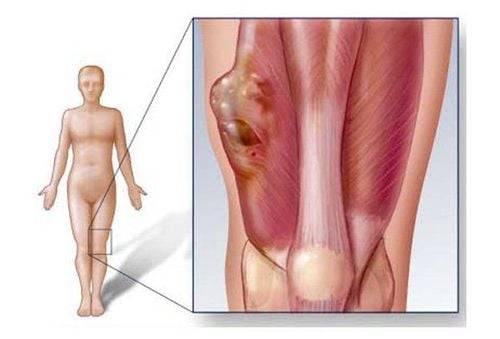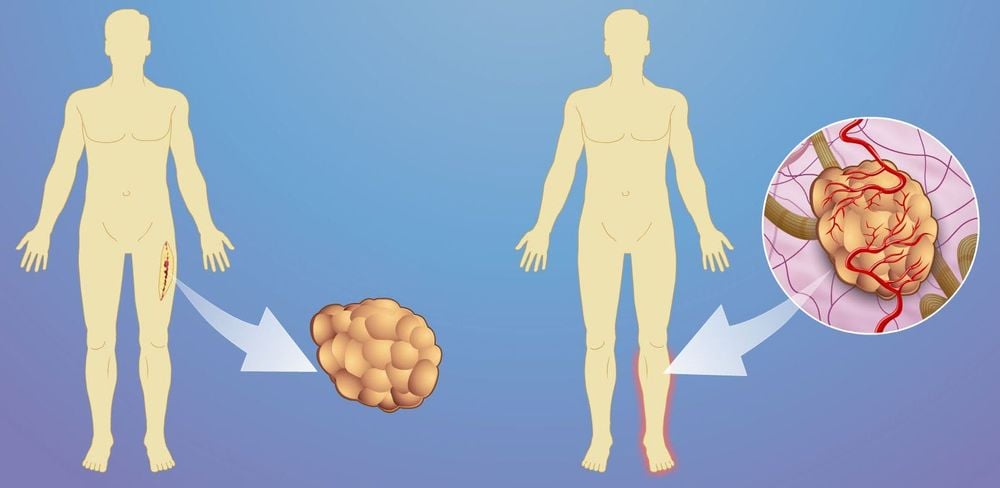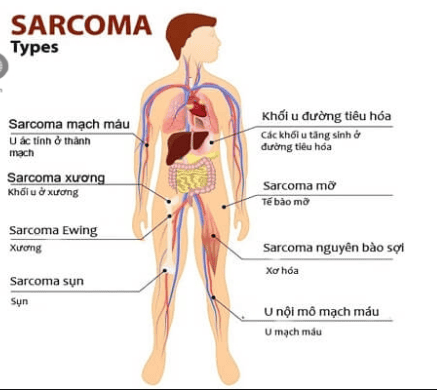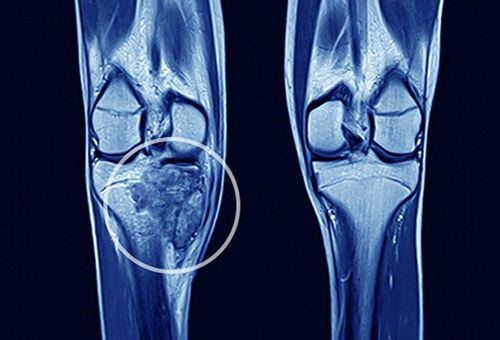This is an automatically translated article.
Soft tissue sarcoma is a rare type of cancer that usually occurs in children and adults. Soft tissue sarcoma can cause serious complications to the patient's health if not detected and treated promptly.1. What is soft tissue sarcoma?
Sarcoma is a type of cancer that starts in tissues such as bones or muscles. Bone sarcoma and soft tissue sarcoma are the two main types of sarcoma.
Soft tissue sarcoma (STS) is a rare and heterogeneous group of tumors that arise in connective tissues of embryonic origin from mesenchymal cells. This type of cancer can develop in soft tissues such as fat, muscle, nerves, fibrous tissue, blood vessels, or deep skin tissue. They can be found on any part of the body, but are most common in the arms, legs, trunk, head, neck, internal organs, and the area behind the abdominal cavity.
Soft tissue sarcomas are rare, accounting for less than 1% of all cancers, and they come in many different types, most of which occur in children and adults. An estimated 13,000 people are diagnosed with one of these cancers each year.
2. Signs and symptoms of soft tissue sarcoma
The most common sign of soft tissue sarcoma is a painless lump or swelling. However, as these tumors grow and develop, they will put pressure on nerves or muscles, causing pain for the patient.
Sarcoma in the lungs or chest can cause you to have chest pain and difficulty breathing.
You should see a doctor if you have the following signs and symptoms:
You notice a tumor growing somewhere in your body Abdominal pain that gets worse When you have a bowel movement, stool black color mixed with blood Vomiting blood A blockage in the stomach or intestines or gastrointestinal bleeding if there is a tumor in the gastrointestinal tract or abdomen The appearance of a visible tumor, but not a sarcoma . They are usually a group of harmless fat cells called a lipoma. However, if you have a tumor that is larger than 2 inches and is growing or painful, you should see your doctor.

Dấu hiệu phổ biến nhất của sarcoma mô mềm đó là xuất hiện một khối u hoặc sưng không gây đau
3. What causes soft tissue sarcoma
In most cases of soft tissue sarcoma, the exact cause of the disease is unknown. In general, cancer occurs when cells have mutations in their DNA. This error causes cells to grow and divide out of control. Abnormal cells clump and form a tumor, which can grow to invade nearby structures and spread to other parts of the body.
Based on the type of cells that develop genetic mutations to determine which soft tissue sarcoma you have. Several types of soft tissue sarcoma are caused by Kaposi's sarcoma. It usually occurs in people with impaired immune systems and is caused by the herpes virus 8 (HHV8). Here are some common types of soft tissue sarcoma, such as:
Vascular sarcoma Soft tissue alveolar sarcoma Bright cell sarcoma Small circular and connective tissue tumor Tumors of skin fibrosarcoma Tumors Endovascular tumors epithelial sarcoma fibrous sarcoma Extrarenal striated tumor Vascular sarcoma Digestive stromal tumor Neonatal fibrous sarcoma Smooth muscle sarcoma Inflammatory myofibroblastic tumor Malignant fibrous tumor Kaposi sarcoma Fat sarcoma Lymphatic sarcoma U Malignant fibrosarcoma Myofibrosarcoma Mixed fibrous sarcoma Peripheral glioma Malignant neurosarcoma Neuroendocrine sarcoma Perivascular epithelial cell tumor (PEComa) Rhabdomytic sarcoma Unclassified soft tissue sarcoma synovial translation

Sarcoma là một loại ung thư bắt đầu trong các mô như xương hoặc cơ
4. Factors that increase the risk of soft tissue sarcoma
Several major factors increase the risk of soft tissue sarcoma, including:
4.1 Hereditary syndromes Soft tissue sarcoma can be passed on from parents to children. Several genetic syndromes that increase the risk of soft tissue sarcoma include Li-Fraumeni syndrome, hereditary eye melanoma, familial adenomatous polyposis, tuberous sclerosis and Werner's syndrome, and neurofibromatosis. .
4.2 Chemical exposure People who are regularly exposed to environments containing many harmful chemicals such as arsenic and dioxins, herbicides will be at risk of soft tissue sarcoma.
4.3 Sarcoma radiation exposure can be one of the side effects of radiation therapy for cancer patients (such as lymphoma, breast cancer).
5. Complications of soft sarcoma
People with soft sarcoma, over time, tumors will grow larger, compressing normal tissues and causing pain to the patient. If the sarcoma metastasizes to other parts of the body, it will cause dysfunction of the affected organ, for example, when the sarcoma spreads to the lungs, it will make the person feel short of breath, or if it spreads to the chest, the patient will feel short of breath. cause chest pain.
Early cancer screening is considered the "golden key" to detect early and provide effective prevention methods and cancer treatment regimens to reduce the risk of death and reduce costs for people. sick. Currently, Vinmec has been and is a leading medical facility in the field of detection, the high-tech cancer screening package at Vinmec gives you the opportunity to screen and detect timely warning risks. to optimize treatment efficiency, improve quality of life.
Any questions about cancer screening at Vinmec, please come directly to the hospital or contact HERE for answers.
MORE:
Signs and risks of bone cancer Bone cancer treatment How is bone cancer diagnosed?













